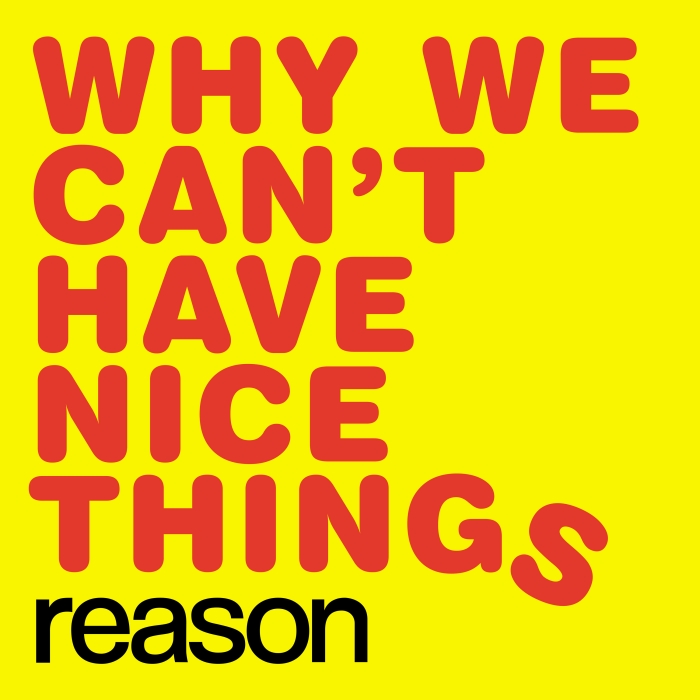Season 2, Episode 6 War on Drugs
Why We Can't Have Nice Things: The War on Drugs
How the FDA and DEA overrule the interests of doctors and patients.

A Reason magazine podcast series about the frustrating and foolish policies that drive up prices and limit the availability of vital goods and services. From the regulations that caused a baby formula shortage to the laws that make prescription drugs more expensive, host Eric Boehm explains how these counterproductive policies get made—and why they can be so difficult to undo.
Subscribe:
Season 2, Episode 6 War on Drugs
How the FDA and DEA overrule the interests of doctors and patients.
Season 2, Episode 5 Podcasts
How restrictions on telemedicine are forcing doctors to choose between following the law and obeying their ethical obligations.
Season 2, Episode 4 Podcasts
Also: Could legalizing the sale of kidneys and other organs save lives?
Season 2, Episode 3 Health Care
Part Two: How Certificate of Need laws limit access to health care, and why those rules can be so difficult to dislodge.
Season 2, Episode 2 Health Care
Too often, it's government bureaucrats acting under the influence of special interests and against the wishes of doctors and patients, with sometimes tragic results.
Season 2, Episode 1 Free Markets
Cuban's Cost Plus Drugs project brings a bit of free market flair to the health care industry, but the lack of meaningful price signals is only part of the problem.
Season 2 Podcasts
A new season brings six new stories about how the government is making Americans poorer and sicker.
Season 1, Episode 6 Podcasts
"There's nobody that says, wait, is this good for America? Is this good for the American consumer?"
Season 1, Episode 5 Podcasts
"It's not easy to make one of these rules, but it's a thousand times harder to get rid of one."
Season 1, Episode 4 Podcasts
"You need an argument for why this is good for society. That's important, but you also need money."
Season 1, Episode 3 Free Trade
"It's just a very classic case of everything wrong with Washington."
Season 1, Episode 2 Free Trade
The U.S. tariff code is "quite regressive and somewhat misogynist" because the most powerful lobbyist in Washington is muscle memory.
Season 1, Episode 1 Podcasts
A combination of "absurdly high" federal tariffs and excessive FDA regulations created the conditions for a crisis.
Season 1 Free Trade
A six-part podcast series on trade policy launching next week

Help Reason push back with more of the fact-based reporting we do best. Your support means more reporters, more investigations, and more coverage.
Make a donation today! No thanks
Every dollar I give helps to fund more journalists, more videos, and more amazing stories that celebrate liberty.
Yes! I want to put my money where your mouth is! Not interested
So much of the media tries telling you what to think. Support journalism that helps you to think for yourself.
I’ll donate to Reason right now! No thanks
Push back against misleading media lies and bad ideas. Support Reason’s journalism today.
My donation today will help Reason push back! Not today
Back journalism committed to transparency, independence, and intellectual honesty.
Yes, I’ll donate to Reason today! No thanks
Support journalism that challenges central planning, big government overreach, and creeping socialism.
Yes, I’ll support Reason today! No thanks
Support journalism that exposes bad economics, failed policies, and threats to open markets.
Yes, I’ll donate to Reason today! No thanks
Back independent media that examines the real-world consequences of socialist policies.
Yes, I’ll donate to Reason today! No thanks
Support journalism that challenges government overreach with rational analysis and clear reasoning.
Yes, I’ll donate to Reason today! No thanks
Support journalism that challenges centralized power and defends individual liberty.
Yes, I’ll donate to Reason today! No thanks
Your support helps expose the real-world costs of socialist policy proposals—and highlight better alternatives.
Yes, I’ll donate to Reason today! No thanks
Donate today to fuel reporting that exposes the real costs of heavy-handed government.
Yes, I’ll donate to Reason today! No thanks